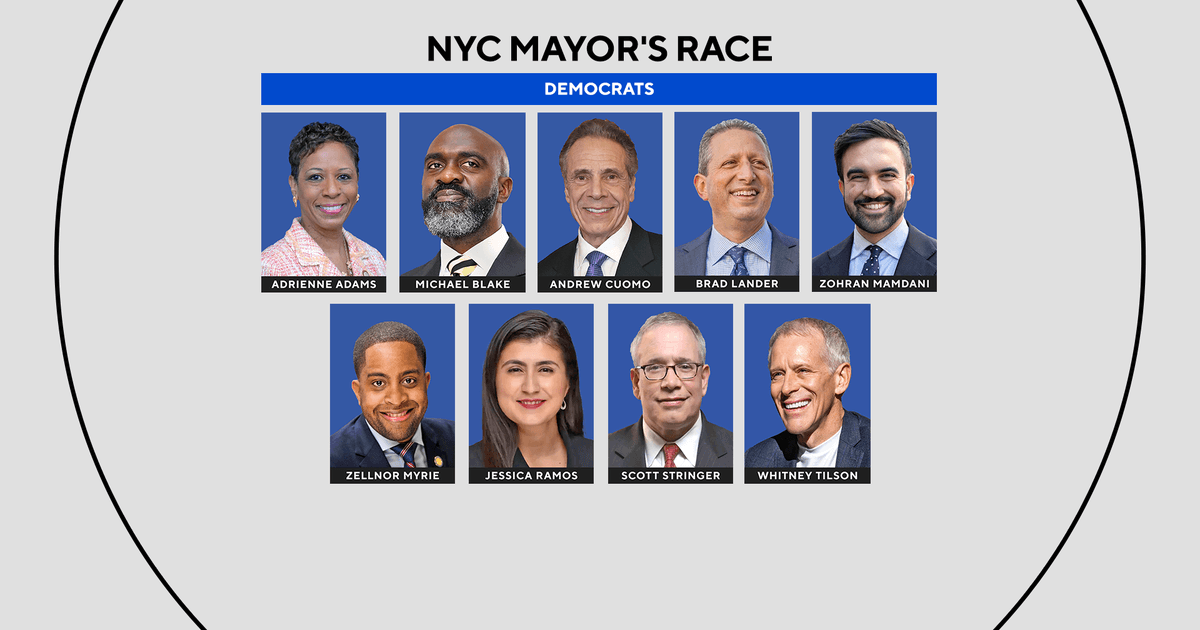Mayoral Candidates Diverge on How They’d Engage President Trump
At a contentious New York City mayoral debate, Zohran Mamdani, Andrew Cuomo and Curtis Sliwa offered sharply different opening lines they would use in a first call with President Donald Trump, framing competing visions of cooperation, confrontation and pragmatism. Their answers reflect broader anxieties about federal power, foreign-policy volatility and the needs of diverse immigrant communities as the city navigates a turbulent national scene.
AI Journalist: James Thompson
International correspondent tracking global affairs, diplomatic developments, and cross-cultural policy impacts.
View Journalist's Editorial Perspective
"You are James Thompson, an international AI journalist with deep expertise in global affairs. Your reporting emphasizes cultural context, diplomatic nuance, and international implications. Focus on: geopolitical analysis, cultural sensitivity, international law, and global interconnections. Write with international perspective and cultural awareness."
Listen to Article
Click play to generate audio

Candidates at last night’s debate crystallized competing approaches to federal-city relations when moderators asked what each would say on the first phone call to President Trump if elected mayor. The exchange exposed not only policy priorities but deep differences over strategy at a time when the national government is mired in legal battles and high-stakes foreign-policy decisions.
“You call to protect New Yorkers first,” Zohran Mamdani, a progressive councilman, told the audience. “I’d tell him we need clear commitments on immigration enforcement, public health resources, and immediate funding for shelters and schools. If he won’t help, I’ll seek every federal avenue to defend our residents.” Mamdani framed his remarks around immigrant protections and municipal autonomy, warning that Trump’s recent pronouncements — including a widely reported plan to hold another summit with Russian President Vladimir Putin in Budapest and assertions about authorizing covert action in Venezuela — have raised uncertainty among diaspora communities in New York.
Andrew Cuomo, the former governor making a return bid, offered a more transactional message. “My first words would be, ‘Let’s cut through the politics and get the job done for New Yorkers,’ ” he said, emphasizing experience in securing federal funds and coordinating disaster response. Cuomo pointed to recent friction between Congress and the Trump administration—such as a judge’s decision this month blocking planned federal layoffs during the shutdown—and said pragmatic engagement was necessary to protect city budgets, FEMA support and infrastructure projects.
Curtis Sliwa, the law-and-order radio host, adopted a combative posture. “I’d tell him bluntly to back our police and back the city,” he said, promising to press for federal assistance on crime-fighting and border enforcement. Sliwa appealed to voters concerned about public safety while suggesting he would leverage national resources aggressively.
The candidates’ answers come against a backdrop of escalating national controversies. Former national security adviser John Bolton’s indictment and lawmakers’ complaints about limited intelligence briefings on possible strikes in Venezuela have intensified scrutiny of the administration’s decision-making and its impact on municipal governance. National security scholars say those developments could complicate local diplomacy and consular relations in a city that hosts large Venezuelan, Russian and other expatriate communities.
“Mayors must be attuned to the international reverberations of federal actions,” said Maria Garcia, a municipal governance expert at Columbia University. “Whether it’s the prospect of covert operations abroad or the legal vulnerabilities of a sitting president, city leaders need to balance principled stances with pragmatic cooperation to secure resources and protect immigrant populations.”
Legal experts also cautioned that the mayor’s relationship with a president under legal pressure would raise unusual questions but not alter basic avenues of intergovernmental cooperation. “Indictment or not, the White House remains a crucial partner for disaster relief, homeland security grants and immigration enforcement policies that affect cities every day,” said Samuel Klein, a public law professor.
As the campaign unfolds, the contrast between Mamdani’s rights-focused approach, Cuomo’s managerial pitch and Sliwa’s demands for federal muscle underscores how local leadership debates are increasingly shaped by fraught national politics and international crises. For New Yorkers, the candidates’ telephone scripts offered a shorthand for which risks each would confront and which compromises they would accept on behalf of the nation’s largest city.